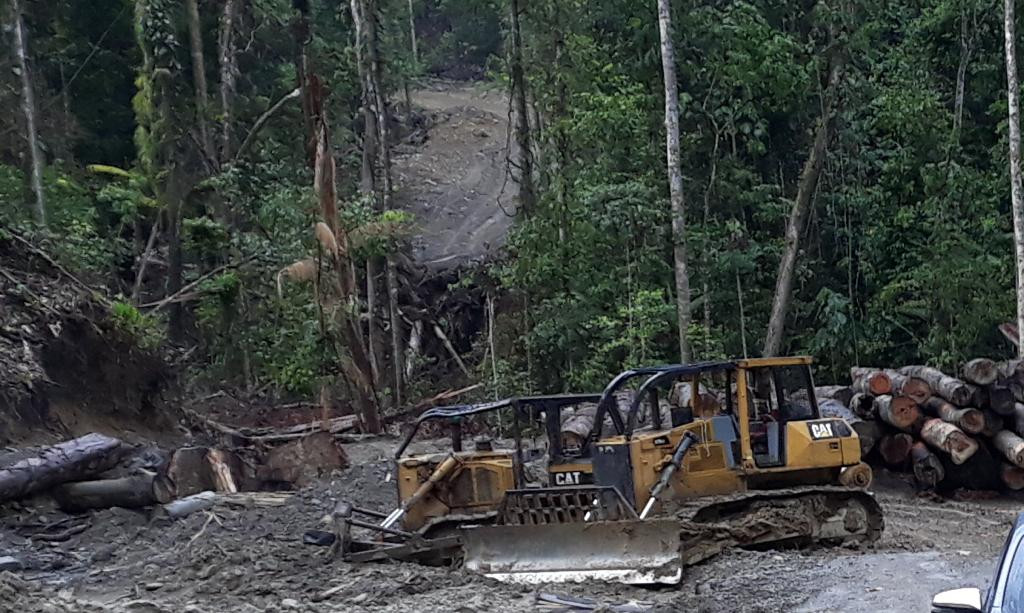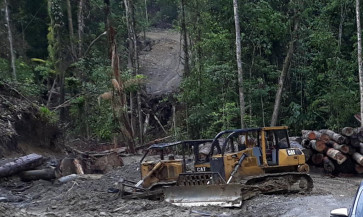Popular Reads
Top Results
Can't find what you're looking for?
View all search resultsPopular Reads
Top Results
Can't find what you're looking for?
View all search resultsCOP26: Silver lining for indigenous peoples and local communities
Asia must be willing to demonstrate leadership in keeping the global heating target of 1.5 degrees within reach.
Change text size
Gift Premium Articles
to Anyone
 This undated handout photo shows two bulldozers and logs of various varieties and sizes seized by investigators with the Environment and Forestry Ministry's law enforcement division in an alleged illegal logging case in Sabuai village, Eastern Seram regency, Maluku. (Handout/Environment and Forestry Ministry)
This undated handout photo shows two bulldozers and logs of various varieties and sizes seized by investigators with the Environment and Forestry Ministry's law enforcement division in an alleged illegal logging case in Sabuai village, Eastern Seram regency, Maluku. (Handout/Environment and Forestry Ministry)
L
eaders of more than 190 countries meeting at the Glasgow climate conference (COP26) earlier this month reached a deal to try to avert the worst effects of global warming.
It is satisfying to see negotiating parties at the conference resolving key elements such as the finalizing of Article 6 of the Paris Agreement and sticking points around finance. The Glasgow Leaders’ Declaration on Forests and Land Use presents a major breakthrough.
Without a doubt, the more holistic integration of themes such as biodiversity, post COVID-19 recovery and social justice is a new and important direction. And the decision by the parties to the United Nations Framework Convention on Climate Change to return in one year to improve their nationally determined contributions and climate pledges is a bright spot.
However, we are concerned and disappointed that the 1.5-degree Celsius degree goal remains far off and that parties have not unanimously agreed to phase out unabated coal power and fossil fuel subsidies. As we go forward, we must not lose sight of the 1.5-degree degree goal and ensure that it remains vibrant.
With the dust from the Glasgow climate conference settling, here are our six major takeaways from the Glasgow climate summit and their implications for forests and forest communities in the Asia-Pacific region.
First, indigenous people and local communities are center stage.
The body of evidence and social justice demands have aligned to put indigenous peoples and local communities on the global stage as never before. This shift has gained momentum since 2016 when members of the International Union for Conservation of Nature (IUCN) made a landmark move to add a new category of IUCN membership for indigenous peoples’ organizations, separate and in addition to nongovernmental organizations.


















